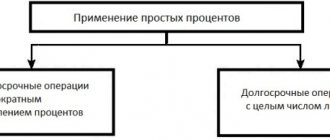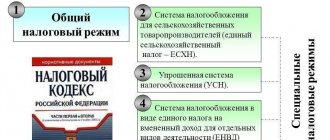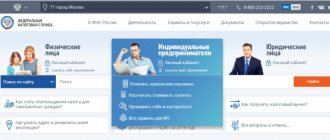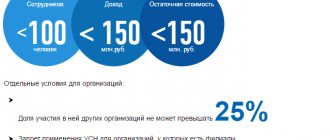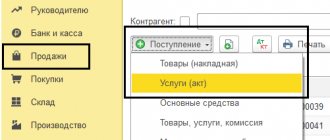Migration of personnel is only growing every year: companies invite non-resident employees to work with the condition of providing housing, or, conversely, employees rent square meters during long business trips. In the meantime, the accountant needs to solve only one question - how, in fact, to register and account for rental apartments?
So, in accordance with the labor or collective agreement, the organization provides housing to nonresident citizens when hiring a new employee. These can be rooms in a dormitory, in a hotel, a separate apartment or rooms in an apartment. In any case, we are dealing with a residential rental agreement. How to register it?
Personal income tax
In accordance with Art. 41 of the Tax Code of the Russian Federation, income is an economic benefit in cash or in kind, taken into account if it is possible to assess it and to the extent that such benefit can be assessed, and determined for individuals in accordance with Chapter 23 “Individual Income Tax” of the Tax Code RF.
According to paragraph 1 of Art. 210 of the Tax Code of the Russian Federation, when determining the tax base, all income of the taxpayer received by him, both in cash and in kind, or the right to dispose of which he has acquired, is taken into account.
As stated in paragraphs.
1 item 2 art. 211 of the Tax Code of the Russian Federation, income received by a taxpayer in kind, in particular, includes the amount of payment (in whole or in part) for it by organizations for goods (work, services) or property rights, including utilities, food, recreation, training in the interests of taxpayer. Therefore, payment by an organization for its employees of the cost of living is recognized as their income received in kind, and taking into account clause 1 of Art. 211 of the Tax Code of the Russian Federation, the amounts of this payment are included in the tax base for personal income tax of these persons (letter of the Ministry of Finance of Russia dated September 14, 2016 No. 03-04-06/53726). Example 1
In accordance with the employment contract, payment of the cost of rent is part of the employee’s salary (official salary). The monthly cost of such rent is 50,000 rubles. Payment is made by transferring funds from the organization's current account to the lessor. The amount of the employee's salary in cash is reduced by the amount paid. Employees' wages are calculated each time they are paid. For the purposes of tax accounting of income and expenses, the organization uses the accrual method.
In the organization's accounting, these transactions should be reflected as follows (see table).
| Transactions for an organization to pay rent for housing for an employee | ||||
| Debit | Credit | Amount, rub. | Contents of operations | Primary document |
| 76 | 51 | 50 000 | Funds were transferred to the landlord for the employee to pay for the cost of rent | Lease contract, bank account statement |
| 26 | 70 | 30 000 | In-kind labor costs are taken into account | Payslip |
| 70 | 76 | 50 000 | The cost of rental housing paid for the employee as part of his salary is taken into account | Accounting information |
| On the date of personal income tax withholding | ||||
| 70 | 68-NDFL | 6500 | Personal income tax is withheld from income in the form of wages paid in kind when paying wages to an employee in cash (RUB 50,000 x 13%) | Tax accounting register (tax card) |
Hotel account
What document will confirm payment for hotel accommodation so that the company does not have any claims from the Federal Tax Service during the inspection?
If the hotel does not use cash register equipment, then in this case it is obliged to draw up a strict reporting form, the form of which it develops independently (Letter of the Ministry of Finance of the Russian Federation dated February 25, 2015 No. 03-07-11/9440). In this case, the name of this document can be anything (receipt, hotel check, invoice, voucher, etc.). Let us recall that until December 1, 2008, hotels used form No. 3-G as a strict reporting form, approved by Order of the Ministry of Finance of Russia dated December 13, 1993 No. 121. But now this form is not used, and, as officials explain, this document cannot used as a BSO (Letters of the Ministry of Finance of Russia dated January 19, 2009 No. 03-01-15/1-11, dated August 7, 2009 No. 03-01-15/8-400).
Currently, each hotel is developing its own strict reporting form. At the same time, it must take into account certain requirements imposed by law for the registration of BSO. If at least one requirement is not met, the document cannot be classified as a BSO. Accordingly, a company whose employee brings such a document from a business trip may have problems taking into account living expenses and deducting VAT on these expenses. What are these requirements?
Firstly, the strict reporting form must contain the mandatory details, the list of which is established in paragraph 3 of the Regulations on the implementation of cash payments and (or) settlements using payment cards without the use of cash register equipment (approved by Decree of the Government of the Russian Federation of May 6, 2008 No. 359). Such details include, in particular, the name of the document, six-digit number and series, the name of the organization providing services, its location and tax identification number, and seal.
Secondly, a simple computer cannot be used to generate strict reporting forms. The fact is that the document form must be printed or generated using automated systems (clause 4 of the Regulations approved by Decree of the Government of the Russian Federation dated May 6, 2008 No. 359). The automated system must be protected from unauthorized access, identify/record and store all transactions with the document form for at least 5 years. Also, when filling out a document form and issuing a document by an automated system, a unique number and series of its form are saved. The same conclusions are presented in Letters of the Ministry of Finance of the Russian Federation dated May 5, 2014 No. 03-01-15/20962, dated November 7, 2008 No. 03-01-15/11-353.
If an employee brings back a “hotel” bill from a business trip that does not meet these requirements, and the company took into account the living expenses on such an account when taxing profits, then if claims arise from the Federal Tax Service, it has a chance to defend its expenses in court (Resolution of the Federal Antimonopoly Service of the North-West district dated November 1, 2010 in case No. A52-3413/2009).
The second option is that the hotel uses cash register systems. Accordingly, the BSO may no longer be issued, and the document confirming payment for accommodation will be a cash receipt. Usually it is accompanied by a document (usually an invoice) that contains complete information about the residence of a particular person.
But what if a seconded employee, instead of a check or BSO, brought a receipt to the cash receipt order?
In such a situation, the company may have problems during verification. Tax authorities may recognize such expenses as unlawfully taken into account when taxing profits, but in court the company has a chance to challenge the claims of the Federal Tax Service (Resolution of the Federal Antimonopoly Service of the North-Western District dated February 10, 2009 in case No. A56-27225/2007).
In addition, additional personal income tax and insurance premiums are likely to be charged on the amount of compensation for “hotel” expenses based on the receipt for the PKO. In practice, some inspectors believe that compensation for hotel expenses confirmed by such a receipt constitutes the employee’s income. One such case was considered by the Federal Antimonopoly Service of the Moscow District in Resolution No. KA-A40/4142-09 dated May 25, 2009. True, there was talk about the calculation of unified social tax and personal income tax. The court did not agree with the controllers and declared the additional accrual unlawful, pointing out that the expenses for hotel accommodation were confirmed by other documents. In this situation, receipts for cash receipt orders, which are official documents confirming the receipt of money by the seller, were attached to the advance reports. The absence of a cash register receipt, in the presence of other supporting documents, cannot be unconditional evidence of misuse of funds by accountable persons and their receipt of payments subject to unified social tax and personal income tax. Thus, the FAS concluded that the funds issued to employees on account were not their income, since they were used in the interests of the company.
A similar conclusion is also contained in the resolutions of the Federal Antimonopoly Service of the West Siberian District dated April 13, 2009 No. F04-1948/2009 (4045-A75-49), and the Moscow District Federal Antimonopoly Service dated February 29, 2008 No. KA-A40/14043-07.
It should be noted that on October 9, 2015, the Government of the Russian Federation No. 1085 approved new Rules for the provision of hotel services. It is noteworthy that they indicate the hotel’s obligation to issue the consumer a cash receipt or a document drawn up on a strict reporting form. We hope that with the release of new rules, hotels will become more responsible in the preparation of documents and will stop issuing documents that do not comply with the law.
Corporate income tax
In Art. 255 of the Tax Code of the Russian Federation determines that the taxpayer’s expenses for wages include any accruals to employees in cash and (or) in kind, incentive accruals and allowances, compensation accruals related to working hours or working conditions, bonuses and one-time incentive accruals, expenses associated with the maintenance of these workers, provided for by the norms of the legislation of the Russian Federation, labor agreements (contracts) and (or) collective agreements. Therefore, if the employer’s expenses for renting housing for non-resident employees are a form of remuneration and a condition in the employment contract, then such expenses for profit tax purposes can be taken into account as expenses as wages expressed in kind, provided that the expenses comply with the requirements of paragraph. 1 tbsp. 252 of the Tax Code of the Russian Federation, according to which expenses must be economically justified, documented and incurred to carry out activities aimed at generating income.
Thus, on the basis of clause 25 of Art. 255 of the Tax Code of the Russian Federation, for tax purposes, the costs of renting residential premises for an employee can also be taken into account as labor costs as other types of expenses incurred in favor of the employee and provided for by an employment and (or) collective agreement. At the same time, there is an alternative option for recognizing these expenses, namely, rental payments for leased property in tax accounting are recognized as other expenses associated with production and sales on the last day of the reporting (tax) period (clause 10, clause 1, article 264 , clause 3 clause 7 article 272 of the Tax Code of the Russian Federation).
Subhire
In practice, it is also possible to provide housing to an employee under a sublease agreement for residential premises. This type of contract is provided for in Article 685 of the Civil Code of the Russian Federation. In this case, the company first enters into a rental agreement directly with the owner of the apartment, but with the conditions for the possibility of subletting. At the same time, a sublease contract for residential premises is concluded with its employees. The employer will be the employer, and the employee of the organization will be the sub-employer. In this case, the subtenant does not acquire independent rights to use the residential premises. The term of the sublease agreement must coincide with the term of the lease agreement.
Restrictions on employee housing expenses
According to the Ministry of Finance of Russia, the cost of paying for housing to an employee of an organization can be taken into account for profit tax purposes in an amount not exceeding 20% of the monthly earnings of this employee, taking into account bonuses and allowances, subject to the conclusion of an employment contract with him. During the period when such an agreement has not been concluded and the employee is not on the staff of the organization, these expenses cannot at all reduce the tax base for income tax (letters dated 09.14.16 No. 03-04-06/53726, dated 10.22.13 No. 03-04-06/44206 and dated September 30, 2013 No. 03-03-06/1/40369).
Consequently, if an organization decides to recognize the costs of paying for housing to employees of the organization when taxing profits in full, then, most likely, it will defend its position in court.
The position of the Russian Ministry of Finance can be argued based on the following arguments:
1) expenses for renting residential premises are not subject to the 20% limit established in relation to earnings in non-monetary form (Article 131 of the Labor Code of the Russian Federation), since the organization’s costs for renting residential premises for employees are not part of wages, and expenses for the maintenance of employees (including those related to renting housing for them) does not apply to it, therefore, when calculating income tax, the costs of renting apartments for foreign employees are taken into account in full;
2) the established 20% limit on payments in kind applies only to employees’ wages and is not subject to application to other payments in their favor, which include payment for the rental of residential premises. Example 2
Under the terms of the concluded employment contract, the employee was provided with an apartment to live in, the rent of which was paid by the organization. The cost of renting housing is 50,000 rubles. The employee's salary is set at 120,000 rubles. The monthly rent is 20,000 rubles.
If an organization adheres to the official position of the Russian Ministry of Finance on this issue, then it will make the following entries in its accounting monthly:
Debit 76, Credit 51 - 20,000 rubles. — the rent for the apartment is listed; Debit 20 (26, 44), Credit 70 - 120,000 rub. — the costs of remunerating the employee are taken into account; Debit 70, Credit 76 - 20,000 rubles. — reflects the cost of rent paid for the employee as payment for labor; Debit 70, Credit 68-NDFL - 2600 rubles. (RUB 20,000 x 13%) - personal income tax is withheld from income in the form of wages paid in kind when paying an employee wages in cash.
In tax accounting, the specified amount of rent will be included in labor costs in full (Clause 25, Article 255 of the Tax Code of the Russian Federation).
Application of PBU 18/02
Expenses that form the “accounting” profit (loss) of the reporting period, but are not taken into account when determining the tax base for income tax, lead to the emergence of a permanent difference and a corresponding permanent tax liability (PNO) (clauses 4, 7 of the Accounting Regulations “ Accounting for calculations of corporate income tax" (PBU 18/02), approved by order of the Ministry of Finance of Russia dated November 19, 2002 No. 114n).
Example 3
Let’s use the conditions of example 2. Let’s assume that the employee’s salary is 60 thousand rubles. The organization adheres to the official point of view. Then, for profit tax purposes, you can take into account 12,000 rubles. (RUB 60,000 x 20%).
The following entries must be made monthly in accounting:
Debit 76, Credit 51 - 20,000 rubles. — the rent for the apartment is listed; Debit 20 (26, 44), Credit 70 - 120,000 rub. — the costs of remunerating the employee are taken into account; Debit 99, Credit 68-PNO - 1600 rubles. (RUB 20,000 - RUB 12,000) x 20%) - PNO reflected; Debit 70, Credit 76 - 20,000 rubles. — reflects the cost of rent paid for the employee as payment for labor; Debit 70, Credit 68-NDFL - 2600 rubles. (RUB 20,000 x 13%) - personal income tax is withheld from income in the form of wages paid in kind when paying an employee wages in cash.
